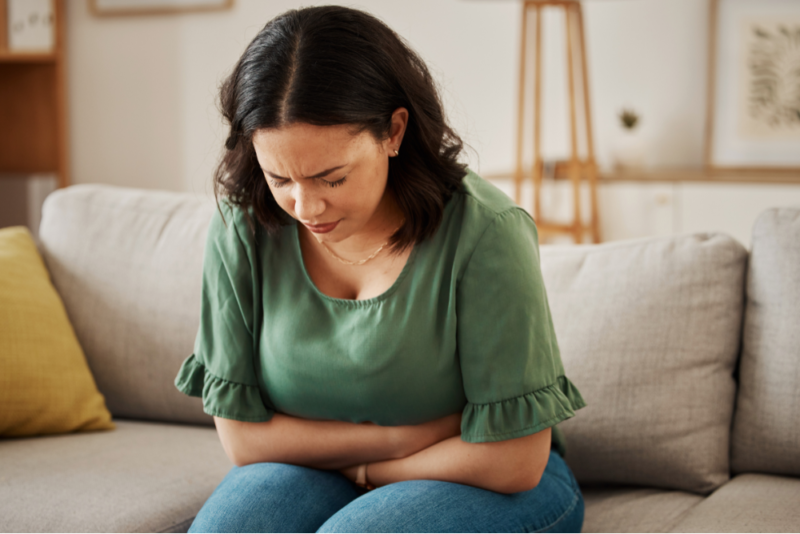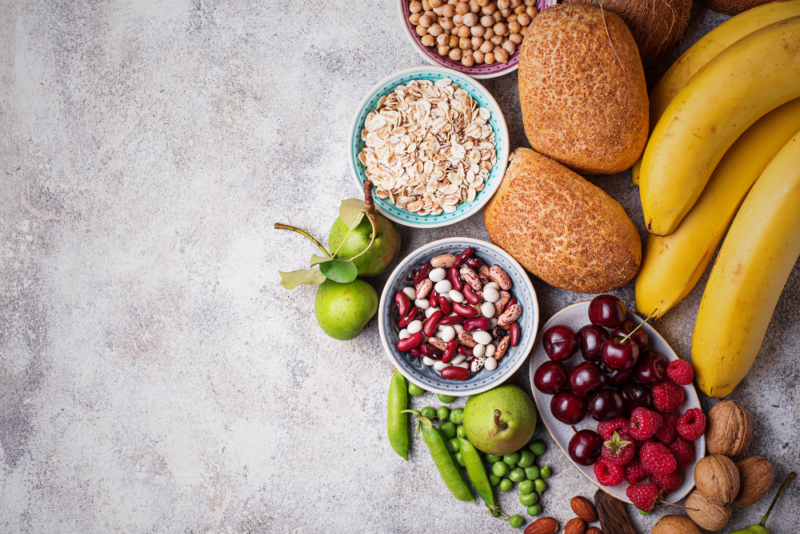If you think a single bout of abdominal pain, gas, bloating, diarrhea or constipation can ruin your day, try having it be a daily, or near-daily, occurrence. That’s what most people who have irritable bowel syndrome (IBS) struggle with.
When you fear running errands, sitting through a long meeting or going to someone’s home for dinner because you might be extra gassy or, worse, urgently need to run for the bathroom, that’s a profound quality-of-life issue.
For years, a diagnosis of IBS came with advice to give up dairy, eat more fiber or to try to reduce stress. Fortunately, we’ve come a long way. While many individuals with IBS are lactose intolerant, and too much stress can give anyone some gastrointestinal distress, thanks to the gut-brain connection, we now know that — ironically — many types of fiber can actually trigger IBS symptoms. In particular, FODMAPs.


What are FODMAPs?
FODMAPs, otherwise known as Fermentable Oligo-, Di-, and Monosaccharides and Polyols, are highly fermentable sugars and dietary fibers that tend to be poorly absorbed in the small intestines of many people with IBS. FODMAPs then travel to the large intestine where they act as “fast food” for gut bacteria, causing excessive gas and bloating. They can also alter the fluid balance in the large intestine, causing diarrhea, constipation, or both.
The irony is that oligosaccharides are a type of prebiotic fiber, which in most people has the symptom-free benefit of feeding the healthy bacteria and other microbes in the gut microbiome. A perfect example of why one diet does not fit all.
Thanks to research out of Monash University in Australia, not only do we know about FODMAPs, but we have a way to figure out which foods are causing symptoms. It starts with avoiding high-FODMAP foods for a few weeks, including:
- Milk, yogurt and a few soft cheeses (high in the disaccharide lactose)
- Wheat, rye and barley (high in fructans, a type of oligosaccharides)
- Fruits that have a higher fructose-to-glucose ratio (including apples and pears)
- Other foods and condiments high in fructose (a monosaccharide)
- Foods high in sugar alcohols (polyols such as xylitol and sorbitol)
- Beans and lentils (high in galacto-oligosaccharides)
- Certain vegetables, including the cruciferous veggies and the onion family (oligosaccharides)


Can the low-FODMAP diet help IBS?
Most people with IBS start to see symptom relief after a few days on a low-FODMAP diet, although sometimes it takes a few weeks to be certain. After two to three weeks eliminating high-FODMAP foods, if there is a noticeable reduction in symptoms, the next step is to “challenge” each type of FODMAP to learn which foods, in what amounts, cause problems. The ultimate goal is to be able to avoid symptoms while enjoying as varied a diet as possible.
So if you think you might have IBS, should you give the low-FODMAP diet a whirl? In a word, no. There are a number of gastrointestinal disorders that have similar symptoms as IBS, and some are quite serious. It’s always important to get a proper diagnosis.
While IBS affects quality of life, it doesn’t cause physical damage to the intestines. The same can’t be said for inflammatory bowel disease (IBD), an umbrella term for Crohn’s disease, ulcerative colitis, and some less common related conditions. IBD can cause ulcers and inflammation to the intestinal lining, which is quite serious.
Also, symptoms of celiac disease can be mistaken for IBS. Gluten is a protein, but the grains that contain gluten (wheat, rye and barley) also contain oligosaccharides. So some people who think they have celiac disease or non-celiac gluten sensitivity actually have IBS. They have a problem with gluten-containing grains, but with the fiber, not the gluten itself.
There have been studies in which people who think they have non-celiac gluten sensitivity (which unlike celiac disease, does not damage the intestine) are secretly given gluten. Many, sometimes most, don’t have any symptoms — then they do have symptoms when they’re given fructans.
Again, all this is a major reason why it’s important to get a real diagnosis.


How IBS is diagnosed
While there’s no test for IBS, the American College of Gastroenterology (ACG) says physicians can make a diagnosis based on what symptoms someone has, and what symptoms they don’t have. Symptoms such as blood in the stool, fever, or unexplained weight loss strongly suggest that what’s going on isn’t IBS, and would warrant testing.
The one test that’s recommended by the ACG is a blood test for the antibodies that are typically present if someone with celiac disease eats gluten — because blood tests are relatively non-invasive. If you haven’t been tested for celiac disease, it’s important to have been eating gluten-containing foods for at least 6 to 8 weeks before you get tested, otherwise the test may produce an unreliable result.
Also, I will say from my experience working with clients who have IBS, is that it can be challenging to DIY the low-FODMAP diet. Many of my clients reached out to me because they started the diet and realized, “Ack…I need help!”
Also, if you have IBS and are considering the low-FODMAP diet, and have a history of disordered eating, it is really important to have support from a registered dietitian nutritionist (RDN) who has experience in both gut health and eating disorders while following the diet (that would be true for ANY elimination diet).
If you want more information on my IBS Management Program, you can find that here.
Carrie Dennett, MPH, RDN, is a Pacific Northwest-based registered dietitian nutritionist, journalist, intuitive eating counselor, author, and speaker. Her superpowers include busting nutrition myths and empowering women and men to feel better in their bodies and make food choices that support pleasure, nutrition and health. This post is for informational purposes only and does not constitute individualized nutrition or medical advice.
Seeking 1-on-1 nutrition counseling? Learn more about her Food & Body, IBS management, and nutrition counseling programs, and book an intro call to see if the program is a good fit, and if we’re a good fit!
Want exclusive content on nutrition, health, diet culture and more, plus critiques of nutrition and health journalism? Subscribe to my Food Noise newsletter! 📣





:max_bytes(150000):strip_icc()/20231204-SEA-TwoBites-French75-hero-cb2b1dc2b24c4154956b020cdbc58688.jpg?w=238&resize=238,178&ssl=1)





